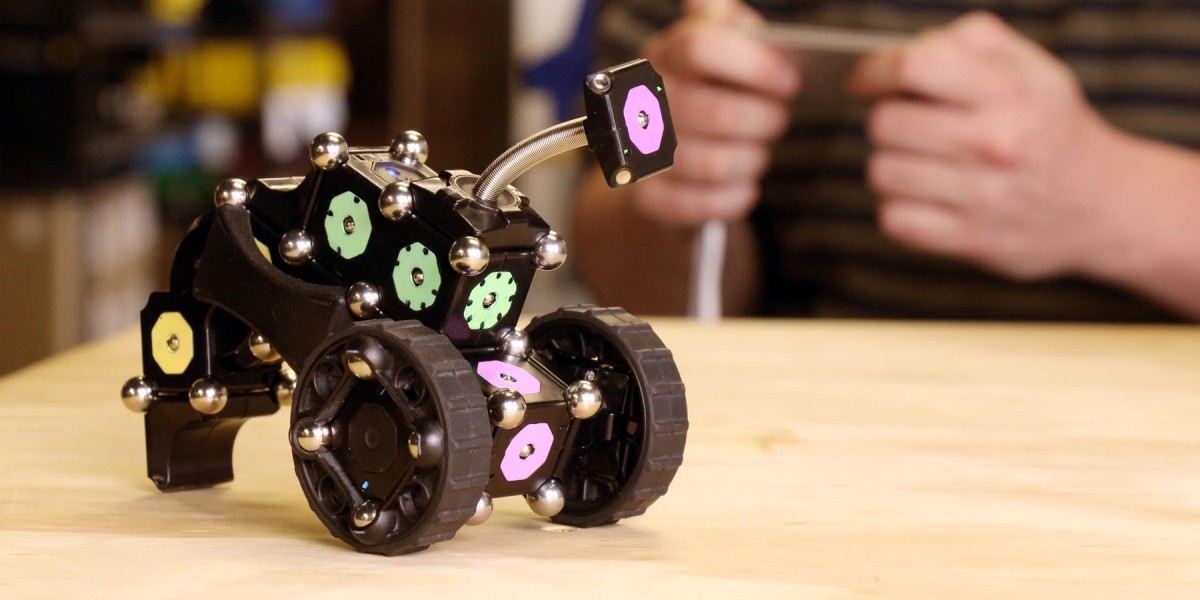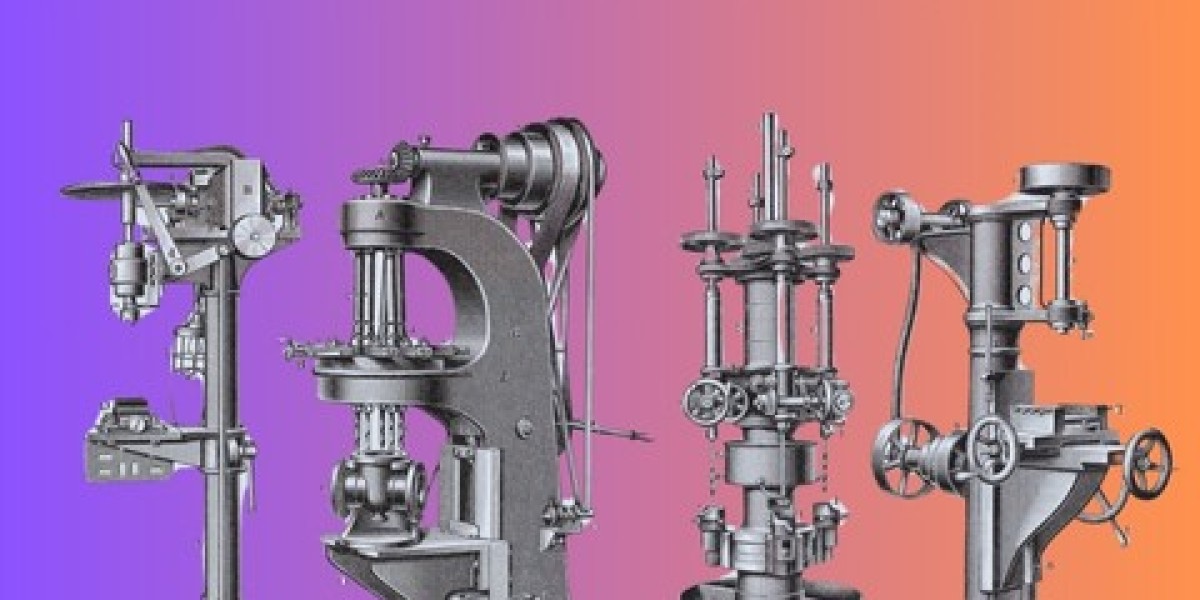The Modular Robotics Market report, unveiled by Future Market Insights—an ESOMAR Certified Market Research and Consulting Firm—presents invaluable insights and meticulous analysis of the Modular Robotics market. Encompassing the research's scope and essence, this report scrupulously examines the driving factors, market size, and predictive data for Modular Robotics. It furnishes intricate revenue and shipment segmentations, accompanied by a decade-long projection up to 2032. Additionally, the document evaluates key industry players, their market distribution, the competitive scenario, and regional perspectives.
The landscape of the Modular Robotics Market is currently undergoing a significant and dynamic transformation, fueled by the remarkable adaptability and versatility of modular robotic systems. These advanced systems empower individual robots to seamlessly carry out a diverse array of tasks, setting a new benchmark for operational flexibility. A pivotal catalyst behind this progress is the seamless integration of modular grippers within the robotic frameworks, representing a pioneering feat in the domain of distributed sensing actuation.
Looking to the future, the modular robotics market is poised for substantial growth, with a projected Compound Annual Growth Rate (CAGR) of 18% during the forecast period. Foreseen market valuations further underscore this trajectory, with estimations pointing towards a value of US$ 9.11 billion in 2022, expected to surge significantly to US$ 47.68 billion by 2032.
The intrinsic modularity ingrained within robotic systems bestows an unparalleled adaptability, allowing a single robot to effectively carry out multiple tasks. This efficacy is further amplified through the integration of an advanced modular gripper, proficient in delicately handling objects through distributed sensing actuation.
Stay at the Forefront of Industry Trends: Kindly Request a Sample for an In-Depth Market Analysis to Discover Lucrative Growth Prospects
https://www.futuremarketinsights.com/reports/sample/rep-gb-10837
Due to their capacity for morphological adaptation, potential robustness, and self-repair capabilities, modular robotics systems are garnering significant attention in the current market landscape. With a growing demand for these systems in the electronics and automotive sectors, manufacturers are directing their efforts towards the development of specialized products that exhibit high efficiency within these industries.
Fueled by the escalating interest, modular robotics manufacturers are actively involved in comprehensive research and development endeavors aimed at enhancing the structural integrity and design of these systems. Primarily, modular robotics find application in critical areas such as space exploration, access to hazardous environments, search and rescue operations, navigation through confined spaces, and the inspection of pipelines and bridges.
Here are some key takeaways on the modular robotics market:
· The modular robotics market is expected to grow significantly in the coming years due to factors such as increasing demand for automation, advancements in artificial intelligence, and the need for flexible and customized manufacturing solutions.
· Modular robots are highly versatile and can be easily customized and reconfigured to suit different applications, making them ideal for use in industries such as automotive, electronics, and pharmaceuticals.
· The Asia-Pacific region is expected to dominate the market due to the presence of key manufacturers and increasing demand for automation in industries such as automotive, electronics, and healthcare.
· Key players in the modular robotics market include ABB Ltd., FANUC Corporation, KUKA AG, Yaskawa Electric Corporation, Mitsubishi Electric Corporation, and Universal Robots A/S.
· The market is also seeing the emergence of several startups that are developing innovative modular robotic solutions for various industries.
· Modular robotics is being increasingly used in collaborative applications where robots work alongside human workers, creating safer and more efficient work environments.
Modular Robotics Market: Dynamics
The widespread integration of modular robotics in diverse industries, including automotive and chemical sectors, has been driven by its ability to enhance productivity, reduce rejection rates, and facilitate scalable operations. These adaptable and easily configurable systems offer a range of advantages, contributing to a notable surge in demand over recent years. Notably, lattice-based modules have gained prominence in end-use industries due to their capability to simultaneously connect more than two modules, surpassing the usage of chain-based modules.
Anticipated to revolutionize the electronics industry, modular robots are poised to optimize the fabrication process and bolster the overall efficiency and integrity of production operations. Escalating labor costs, even in traditionally low-cost regions like China and India, have bolstered the appeal of modular robotics and industrial automation, as organizations seek sustainable solutions to counteract these financial pressures.
Despite their evident benefits, the development of tailored solutions for specific applications in the realm of modular robotics comes at a substantial cost, often posing a challenge for small and mid-size enterprises to adhere to stringent budgetary constraints. Furthermore, factors such as high maintenance expenditures and a lack of awareness are likely to impede the growth trajectory of the global modular robotics market.
Modular Robotics: Regional Market Outlook
In the Asia Pacific, increasing the adoption of robots in the electronics and automotive industries is estimated to create lucrative growth opportunities in the modular robotics market. In the Asia Pacific, East Asia is stipulated to be an attractive region for the modular robotics market owing to the increasing factory automation rate. China is expected to show lucrative growth opportunities in the market due to heavy investment in industrial automation. North America is expected to show a significant share in the modular robotics market due to the high adoption rate of autonomous and advanced robots across the region. Regions including Middle East Africa and Latin America are predicted to have healthy growth in the global modular robotics market.
Modular Robotics: Market Key Players
Examples of some of the market participants identified in the global modular robotics market are:
· ABB Ltd.
· FANUC Corporation
· Mitsubishi Electric Corporation
· Yaskawa Robotics
· Kawasaki Heavy Industries, Ltd.
· Aurotek Corporation
· Universal Robots
· DENSO
· A.C.M.I. spa
· CMA Robotics Spa
· Rethink Robotics GmbH
The Modular Robotics research report presents a comprehensive assessment of the Modular Robotics market and contains thoughtful insights, facts, historical data, and statistically supported and industry-validated market data. It also contains projections using a suitable set of assumptions and methodologies. The Modular Robotics research report provides analysis and information according to market segments, such as geographies, application, and industry.
The global report is a compilation of first-hand information, qualitative and quantitative assessment by industry analysts, inputs from industry experts and industry participants across the value chain. The Modular Robotics report provides in-depth analysis of parent market trends, macro-economic indicators and governing factors along with market attractiveness as per segments. The report also maps the qualitative impact of various market factors on market segments and geographies.
Key Segments
By Product Type:
· SCARA Modular Robots
· Articulated Modular Robots
· Cartesian Modular Robots
· Parallel Modular Robots
By Hardware Design:
· Chain-based
· Lattice-based
· Strut-based
By Configuration:
· Auto-Configuration
· Manual Configuration
By End Use Industry:
· Automotive
· Electronics & Electrical
· Chemical
· Food & Beverages
· Pharmaceutical
· Others
By Region:
· North America
· Latin America
· Asia Pacific
· Europe
· MEA








